Is Torrenting Illegal? Downloading Files Without Your ISP Knowing in 2025
If you’ve ever wondered “is torrenting illegal?,” you’ve come to the right place. Keep reading to learn how the technology works, why it has such a sketchy reputation and finally how you can protect yourself while torrenting.
Torrenting has been the core of digital piracy almost since its inception, as it provides a decentralized way to share files without the need for a central server. Because it’s so often used to distribute illegal content, the question “is torrenting illegal?” is not uncommon.
Despite the fact that the overwhelming majority of content transferred through torrents is copyrighted material, that doesn’t mean the technology itself is illegal. It’s similar to how you can use the World Wide Web to commit crimes, but simply using it in general does not constitute criminal activity.
However, before we get into the nitty gritty of how torrenting can be legal or illegal depending on its use, it’s important to understand the basic principles of how torrenting works.
Our writers are not lawyers; our advice here on what makes torrenting legal or not is based on research. Please approach torrenting, torrent sites, file sharing and copyrighted material with caution for the law.
Protect Your Privacy. Get Our Free VPN Guide Now!
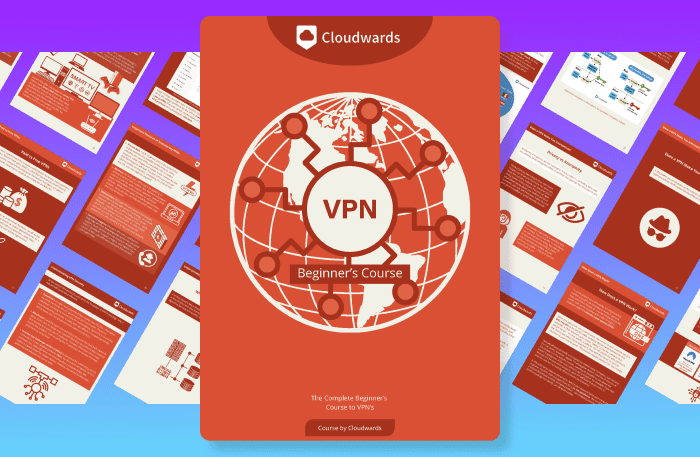
- Comprehend the essential role a VPN plays in safeguarding your digital life
- Gain a deep understanding of how VPNs function under the hood
- Develop the ability to distinguish fact from fiction in VPN promotions
-
02/05/2023 Facts checked
Rewrote the article; updated with more details and statistics.
-
10/01/2024 Facts checked
We revised the provider order based on our comprehensive reevaluation of the VPNs’ capabilities and value.
What Is Torrenting?
Torrenting refers to the act of sharing files through the peer-to-peer BitTorrent protocol. Peer-to-peer means that rather than relying on a server-client architecture (where multiple clients or users connect to a limited number of servers), all users form a network where they can connect to each other and share data directly between them.
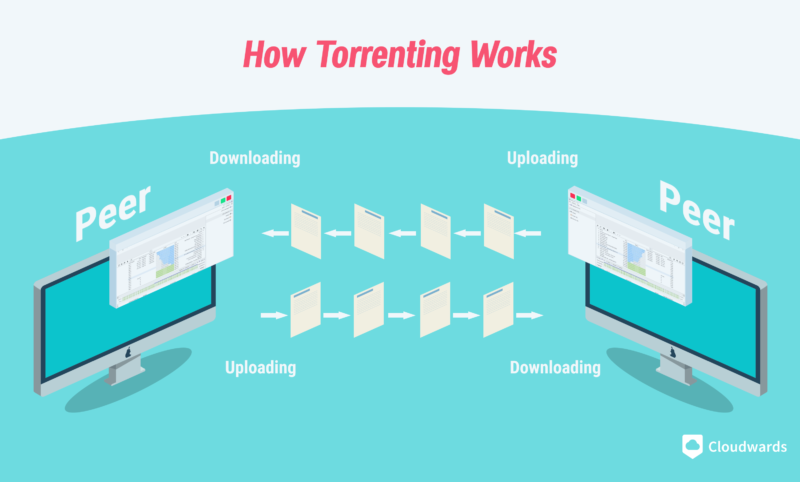
The part that makes BitTorrent unique is that rather than sending entire files between users on the network, it breaks files into small chunks. These chunks are then sent out to all the users who wish to download the file (known as peers).
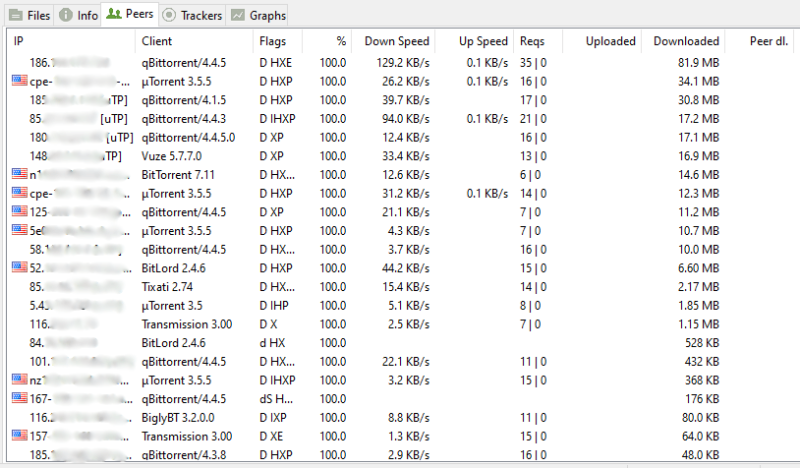
Once a peer has a part of a file, they have to exchange that part to receive another one, creating a chain of smaller transactions that eventually make up the entire file.
Once a peer has all the parts of the file, they become a seeder, exchanging the file chunks for nothing. In most cases, a torrent that no longer has any seeders will simply die, as it’s unlikely that the remaining peers will be able to create the full file between them.
If you’d like a more in-depth explanation of how torrenting works, you can check out our longer torrenting guide on the technical details.
The important thing to understand for the purposes of this article is that torrenting refers to a type of file-sharing that’s decentralized and relies on users simultaneously downloading and uploading parts of the file between them.
Is Torrenting Illegal in the US?
No, torrenting in itself is not illegal. For example, there are plenty of video game companies (like Blizzard, of World of Warcraft fame) that use the technology to distribute updates to their products.
Similarly, researchers and archivists frequently use the BitTorrent protocol to transfer large datasets that would otherwise require expensive server architecture to distribute.
There’s also nothing illegal about downloading something that you already own the rights to — like a piece of old software or a game that you lost the installation disc for. Similarly, content that’s in the public domain (for example, a lot of classic literature or music) is legal to download or distribute via torrenting.
When Can Torrenting Become Illegal?
All that said, torrenting does become illegal if you’re downloading copyright-protected material that you don’t already own the rights to. This includes music, movies, TV shows, books, audiobooks and any other content protected by the Digital Millennium Copyright Act (DMCA).
Additionally, the act of uploading or sharing copyrighted material is illegal in all circumstances, which generally happens automatically (through seeding) when you download a file.
What Happens If You Get Caught Torrenting Files?
If you get caught torrenting copyrighted material, the first thing that will happen is your ISP will send you (or whoever pays for your internet subscription) a warning saying that you are in violation of the user agreement.
If you continue getting caught, you’ll keep receiving warnings until either the ISP informs the copyright holder (who can choose to sue you) or simply terminates you as a customer — or both.
In the vast majority of cases, this is as far as it ever goes. The number of copyright infringement lawsuits filed in the U.S. has been steadily decreasing over the past few years, although with a notable caveat that certain entertainment industries are far more hawkish on the issue than others.
Can I Get in Trouble for Torrenting Porn?
Most notably, over the past few years, there has been a dramatic uptick in copyright infringement lawsuits filed by the porn industry. This trend began in 2017 and has accelerated since.
In particular, a single company — Strike 3 Holdings, which owns several popular adult entertainment brands — was responsible for more than 50% of all copyright infringement lawsuits in the U.S. in 2022. For reference, there were 5,537 copyright lawsuits filed in that year, with Strike 3 suits accounting for 2,937 of those.
Setting aside this specific industry and a handful of companies, copyright infringement lawsuits have been on a steady downward trend for years, reaching its lowest point in 2017 at just 3,336 lawsuits across the entire country, which even then were dominated by suits originating in the porn industry.
Criminal Copyright Infringement
Technically, anyone who engages in willful copyright infringement for the purposes of generating revenue or incurring a loss greater than $1,000 within a 180-day period is liable for criminal prosecution under the No Electronic Theft Act (NET Act). Proving willfulness in this context generally relies on the infringer ignoring warnings or cease-and-desist letters.
However, this is exceedingly rare. In 2021, only 36 people were sentenced for criminal copyright infringement in all of the U.S. Furthermore, in all but two of these cases, the defendants had made significant financial gain through the copyright infringement. Out of the 36 cases, 60% received a prison sentence, with an average length of 10 months.
Generally, criminal penalties come only after repeated warnings and legal threats by the injured party, unless you’re circumventing copyright laws for personal financial gain.
How Do ISPs Know When You Torrent Files?
If you’re not using a VPN or some other form of protection like I2P when you torrent, your activity is fully visible to your ISP. This doesn’t just apply to torrenting, but all internet traffic.
Even if the data itself is encrypted (for example, with HTTPS, as most modern websites are), the ISP can still see where the traffic is going and what protocol it uses.
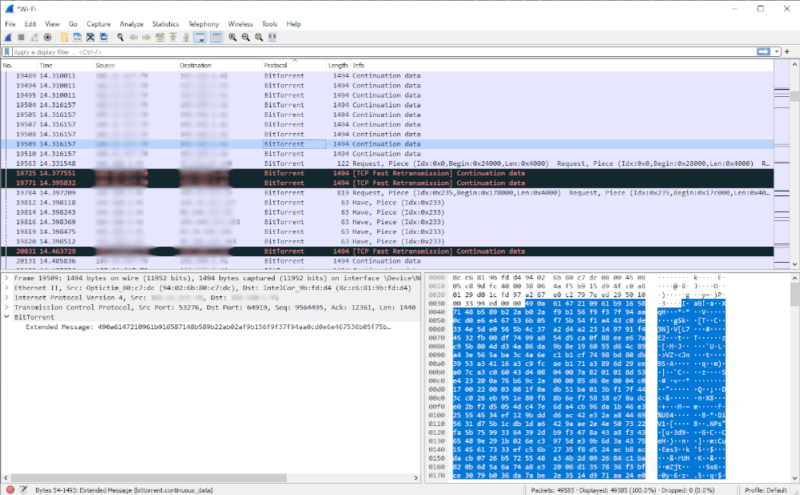
Because of this, it’s easy for the ISP to determine what part of your traffic is using the BitTorrent protocol, provided you haven’t masked it.
How to Avoid Being Caught Downloading Torrents
The easiest way to mask the fact that you’re torrenting is by using a VPN. As long as it’s a reliable provider with a solid no-logs policy, a VPN scrambles all of your traffic so that no one (not even your ISP) can tell what you’re doing online.
A more advanced alternative (or supplement) to using a VPN is to download torrents over the Invisible Internet Project (I2P) network. This requires a bit more work to set up, and the fact that you’re connecting to the I2P network will still be visible to your ISP, so using a VPN is still the recommended option for maximum anonymity from your internet service provider.
Another reason to use a VPN while torrenting is that not only can your ISP see what you’re doing, but so can anyone else connected to the same torrent as you. Unless protected by a VPN, all the IP addresses of everyone connected to the torrent are visible to all the other users.
The Best VPNs For Torrenting
Even though using a VPN for torrenting is the best way to ensure that you don’t get caught, not all VPN services perform well for this purpose. If you want to see all the options, check out our list of the best VPNs for torrenting, as here we’ll stick to two: NordVPN and ExpressVPN.
Both VPNs offer split tunneling, which is a crucial feature for torrenting — especially for automatically downloading torrents — as it lets you keep the VPN running for your torrent client at all times while the rest of your internet connection can remain unprotected.
1. NordVPN — Best Torrenting VPN
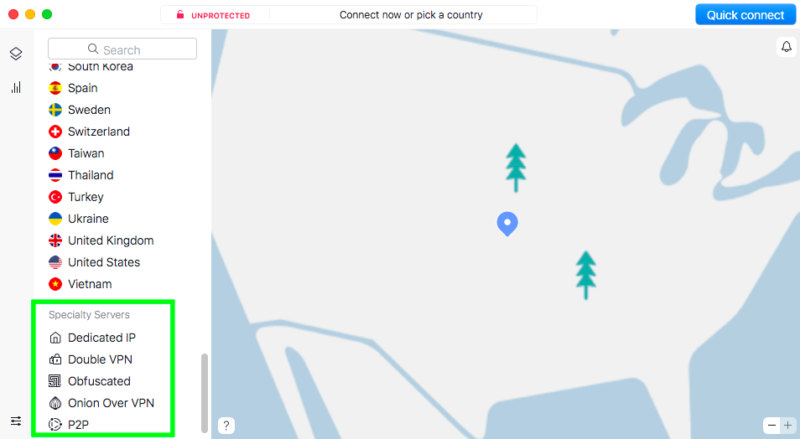

Very Fast

Very Fast

Very Fast
NordVPN is an overall great service, and one of the fastest than VPNs, though not all of its servers are optimized for peer-to-peer traffic. Instead, you can use NordVPN’s dedicated P2P servers, which should provide good speeds when torrenting, so long as the traffic isn’t too high.
NordVPN goes toe to toe with ExpressVPN (our other pick) on security and privacy, and is just as packed with features. On top of that, NordVPN has plenty of other things going for it that doesn’t relate to torrenting, so be sure to read our NordVPN review to learn more.
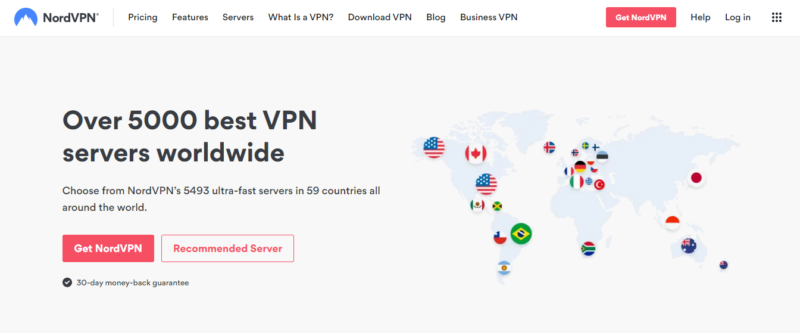
Although it’s not the cheapest VPN out there, NordVPN is a very budget-friendly option. As usual, the monthly plan is quite costly at $12.99 per month, but the one-year and two-year offerings are much better deals at $4.99 and $3.09 per month respectively.
NordVPN also offers a bundle that includes its full suite of software, including a password manager and basic cloud storage. You can give NordVPN a try for a month using the 30-day money-back guarantee.
- **VAT may apply
- Unlimited GB
- 10
- Yes
- *The prices are charged in the first billing cycle only. Renewal prices vary.
- Unlimited GB
- 10
- Yes
- *The prices are shown only apply for the first 12 months.
- Unlimited GB
- 10
- Yes
- **The prices are applicable only for the first 24 months. Secure, high-speed VPN Threat Protection Pro™: Anti-malware and advanced browsing protection Threat Protection Pro™: Ad and tracker blocker Password manager with Data Breach Scanner 1 TB of encrypted cloud storage Identity and SSN monitoring and alerts Credit monitoring services Up to $1M in identity theft insurance Up to $100K in cyber extortion insurance
- 10
2. ExpressVPN — Best Torrenting VPN for Beginners
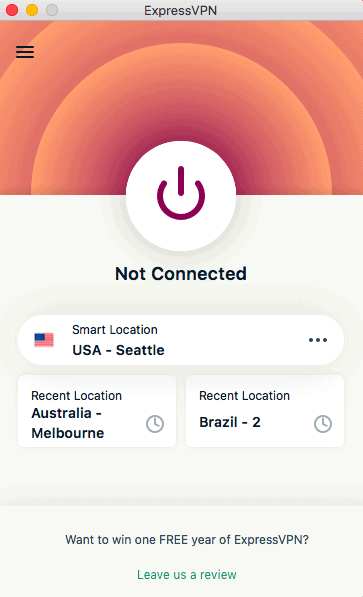

Very Fast

Very Fast

Very Fast
ExpressVPN is one of the best VPNs overall, and also a great choice for torrenting, owing to its excellent security, fast speeds and airtight no-logs policy. The strong encryption and VPN protocols combined with the no-logs policy means that you can rest easy knowing that there are no logs of your torrenting should someone decide to come after you.
Furthermore, fast speeds are a necessity if you plan to torrent a lot. Torrents containing video files or games can quickly become enormous in size, meaning that a VPN that slows your connection to a crawl is never going to get the job done. According to our tests, ExpressVPN offers fast and consistent speeds for torrenting regardless of server.
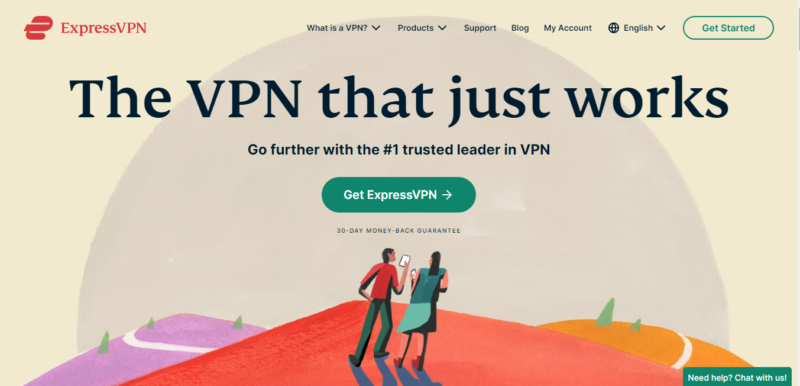
The biggest downside to ExpressVPN is undoubtedly its price. The 15-month plan is discounted and will run you and $6.66 per month, respectively.
Still, even with the longer-term discounts, ExpressVPN is expensive. Luckily, you can try it out for free using the 30-day money-back guarantee, or check out our ExpressVPN review for more details.
Final Thoughts: Are Torrents Illegal?
While torrenting itself is completely legal, there is no question that by far the most common use-case for the technology is illegal downloads and the sharing of copyrighted content.
Fortunately, all you need to do to access torrent websites and download files without your ISP keeping track of what you’re doing is install a VPN. A VPN will hide real IP addresses and protect users from an ISP seeing what you’re doing and make torrenting safe (or more safe) from prosecution.
We recommend NordVPN as the best option for torrent clients, but there are many other competent VPNs that are up to the task. With NordVPN’s risk-free 30-day refund period, you have nothing to lose and everything to gain by giving the service a try.
FAQ
Unless you’re involved with the actual distribution of illegal torrents on a large scale — for example, by setting up a torrenting site or uploading enormous amounts of copyrighted material — then you’re very unlikely to go to prison for torrenting.
Torrenting is only illegal when used to download copyrighted material that you otherwise don’t own the rights to. There are plenty of legal uses for BitTorrent, including distributing large files like video game patches or downloading content that you’ve already purchased but don’t have physical access to.
Torrenting or using torrent software itself isn’t illegal; it’s when you torrent unsanctioned copyrighted material that you might face repercussions from your ISP or copyright owners.
Torrenting in general is not illegal in the U.S., but torrenting copyrighted material is, though you’re unlikely to be criminally prosecuted.
As long as you use a reliable VPN that doesn’t leak, you shouldn’t get caught torrenting while connected to a VPN.


